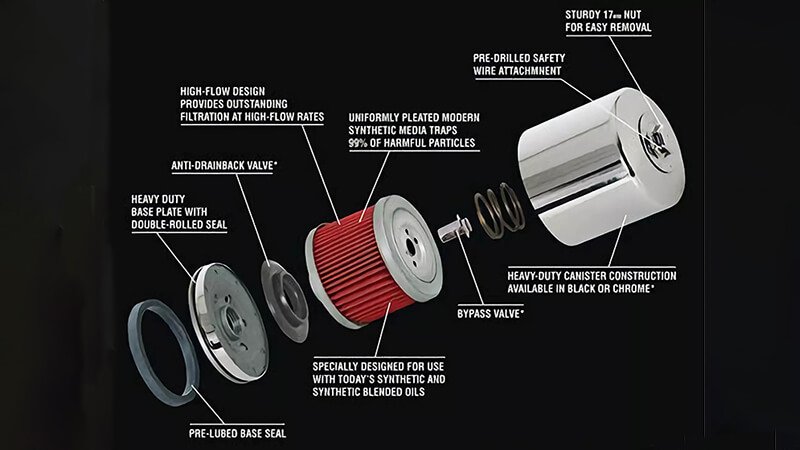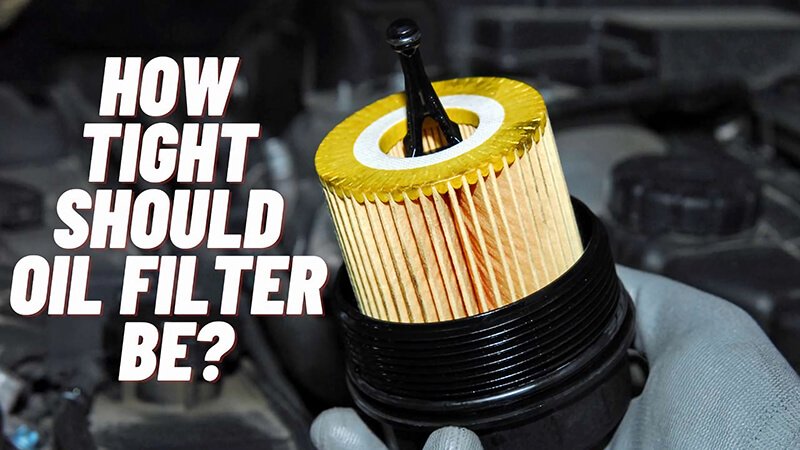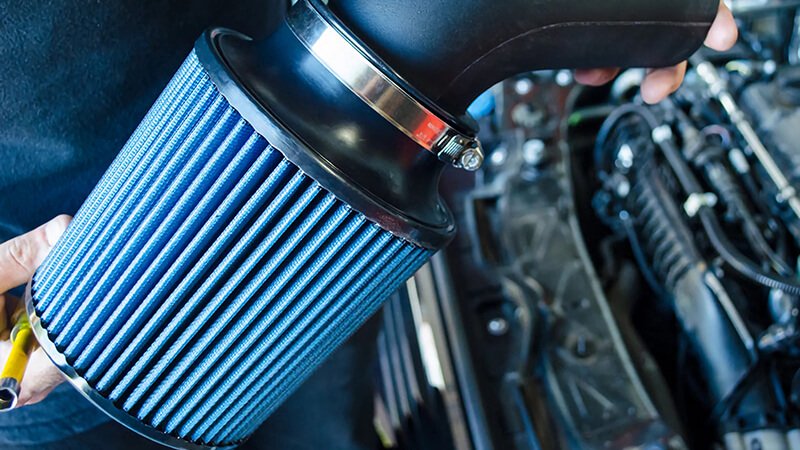When it comes to saving money, reusing motor oil might sound like a smart idea. But can filtering used motor oil actually make it suitable for reuse? Let’s dive into the facts and explore whether this is a viable option for your vehicle.
Filtering used motor oil can remove contaminants, but it can't fully restore the oil’s original quality. The oil's additives degrade over time, and filtering only removes particulates. Re-refining by professionals is necessary to make it usable again. In this article, we’ll discuss whether filtering used motor oil is a safe and effective practice.
While filtering removes impurities, there are many factors that prevent used motor oil from being reused effectively in a car. Let's take a closer look at the different aspects of this topic to understand the limitations.

Can You Filter Used Motor Oil and Reuse It?
The idea of reusing filtered motor oil is attractive due to its potential to save on oil changes. However, filtering alone is not enough to make the oil as effective as fresh motor oil. Filtering can only remove large contaminants like dirt, but it doesn't address the chemical breakdown of the oil's additives.
Filtering used motor oil can remove particles and contaminants, but it does not restore the oil's lost additives or its full lubricating capability. The oil’s additive package, which helps reduce engine wear and oxidation, degrades over time, making re-refining by professionals the only way to make it fully reusable.
Motor oil is formulated with specific additives that help it perform at its best. These additives include detergents, dispersants, anti-wear agents, and antioxidants, which protect the engine by preventing corrosion, wear, and the buildup of sludge. Over time, as the oil circulates through the engine, these additives degrade and lose their effectiveness.
Filtering used motor oil removes large particles and contaminants like soot and dirt. However, filtering does not restore the chemical properties of the oil that break down over time. The process of filtering is merely physical—it removes particulates but doesn't address the loss of antioxidants or the degradation of other critical components. As a result, filtered oil, even though cleaner, still lacks the vital properties needed to protect the engine. Without restoring the oil’s original additives, the oil is not capable of performing as effectively as fresh oil.
To truly reuse motor oil, it requires re-refining1. Professional re-refining restores the oil’s chemical balance by removing contaminants and rejuvenating the oil’s additive package, making it safe to use again in a car. Filtering alone simply doesn't meet these standards.
| Factor | Filtering Used Oil | Re-refining Used Oil |
|---|---|---|
| Removes Contaminants | Yes | Yes |
| Restores Additives | No | Yes |
| Improves Oil Performance | No | Yes |
| Suitable for Reuse | No | Yes |
| Requires Professional Help | No | Yes |

Can You Leave an Old Oil Filter with New Oil?
It’s common to wonder if you can just leave the old oil filter in place and add new oil. However, doing so may not be as simple as it sounds. Using a used oil filter with new oil could cause more harm than good to your engine.
Leaving an old oil filter with new oil isn’t recommended, as the filter may still contain debris and contaminants from the old oil. This can affect the performance of the new oil and damage your engine. It’s important to always replace the oil filter when changing the oil to ensure proper filtration and engine health.
The oil filter2 plays a vital role in the overall performance and longevity of your engine. It is responsible for trapping dirt, dust, and other contaminants that can cause wear and tear on engine parts. Over time, as the oil filter becomes saturated, it reaches its capacity and cannot efficiently filter out new contaminants. Leaving an old oil filter with fresh oil essentially means that the contaminants from the previous oil are still being filtered into the new oil, which compromises the performance of the new oil and the health of the engine.
The function of an oil filter is to trap and hold debris while allowing the oil to circulate smoothly. However, once the filter is full, its ability to do this diminishes. If left unchanged, the filter may allow contaminants to pass through, leading to premature engine wear3. Oil filters are designed to work optimally only for a limited period, after which they must be replaced to ensure that fresh oil remains clean and properly filtered.
Using a new oil filter with every oil change4 ensures that the new oil is properly filtered and that contaminants do not accumulate in the system. Not only does this help the engine run smoothly, but it also improves the overall efficiency of the vehicle and reduces maintenance costs over time.
| Factor | Old Filter with New Oil | New Filter with New Oil |
|---|---|---|
| Filters Out Contaminants | No | Yes |
| Protects Engine Performance | No | Yes |
| Prevents Contamination | No | Yes |
| Recommended for Optimal Health | No | Yes |

Can You Change Oil Filter Without Emptying?
Another common question is whether it’s possible to change the oil filter without draining the oil. While this might seem like a convenient shortcut, it’s not ideal for maintaining engine health.
Changing the oil filter without draining the oil can result in contamination and inefficient oil circulation. It’s always best to drain the oil before changing the filter to ensure that the system is fully cleaned and the new oil is properly filtered.
The primary purpose of changing the oil filter is to remove accumulated contaminants5 that have been trapped during the previous oil cycle. When you change the oil filter without draining the oil, the old contaminants still remain in the engine, which can contaminate the new oil. This defeats the purpose of replacing the oil filter6 and can lead to increased engine wear and possible failure.
Additionally, when you change the filter, some old oil will inevitably spill out. If the oil has not been drained, this old oil will mix with the new oil, leading to less effective lubrication and more contaminants being circulated throughout the system. This can cause the new oil to break down more quickly and lead to more frequent oil changes, which can be both costly and time-consuming.
For optimal engine performance7, it's important to drain the old oil first. This ensures that the engine is free of contaminants, and the new filter and oil can function as intended. Changing both the oil and the filter together ensures the best protection for your engine.
| Factor | Change Filter Without Draining | Change Filter with Draining |
|---|---|---|
| Contaminant Removal | No | Yes |
| Effectiveness of New Oil | No | Yes |
| Prevention of Engine Wear | No | Yes |
| Maintenance Efficiency | No | Yes |

Are Car Oil Filters Reusable?
It might seem like a good idea to reuse a car oil filter, but doing so can have serious consequences for the engine's health and performance.
Car oil filters are not designed to be reusable. Once used, the filter has already collected debris and contaminants, which can damage your engine if reused. It’s important to replace the oil filter every time you change the oil to ensure proper filtration and engine protection.
Oil filters are engineered to be single-use components. After they have filtered the oil and collected contaminants, they become saturated and lose their efficiency. Reusing an oil filter poses significant risks because the contaminants trapped in the filter8 can re-enter the engine, causing damage to the components and potentially leading to engine failure9.
Furthermore, oil filters10 are designed to handle a specific amount of contaminant load. Once the filter has reached its maximum capacity, it cannot effectively trap additional particles. Reusing the filter would allow the remaining contaminants to circulate, leading to engine damage and reduced oil performance.
Replacing the oil filter with every oil change ensures that the engine receives the cleanest oil possible. This is essential for maintaining the longevity and efficiency of the engine. Using a new filter also ensures that the oil is properly filtered, which helps reduce the risk of wear, corrosion, and sludge buildup in the engine.
| Factor | Reused Filter | New Filter |
|---|---|---|
| Effectiveness of Filtration | No | Yes |
| Engine Protection | No | Yes |
| Prevention of Contamination | No | Yes |
| Recommended for Optimal Health | No | Yes |

Conclusion
In conclusion, reusing motor oil by simply filtering it is not a viable solution for maintaining engine performance. The oil's additives degrade over time, and filtering cannot restore them. It's important to replace both the oil and the filter 11 to ensure proper engine health. Reusing old filters or leaving old filters in place can cause engine damage and reduce the effectiveness of the new oil. Regular oil changes, including both oil and filter replacements, are essential for optimal engine performance and longevity.
-
Understanding re-refining can help you appreciate the process of rejuvenating used motor oil for safe reuse. ↩
-
Understanding the role of an oil filter can help you maintain your engine's health and performance effectively. ↩
-
Learn how an oil filter can significantly reduce engine wear and prolong the life of your vehicle. ↩
-
Discover the importance of changing the oil filter regularly to ensure optimal engine performance and longevity. ↩
-
Discover the impact of contaminants on engine oil and how to prevent them for better engine health. ↩
-
Understanding the role of the oil filter can help you maintain your vehicle's engine health effectively. ↩
-
Learn how proper oil changes can enhance your engine's performance and longevity. ↩
-
This link will explain how trapped contaminants can impact engine performance and the importance of regular filter changes. ↩
-
Understanding the causes of engine failure related to oil filters can help prevent costly repairs and maintain vehicle longevity. ↩
-
Exploring this resource will provide insights into the importance of using new oil filters for engine health and performance. ↩
-
Looking for OEM oil filter for your business from Runex Auto, clicking this link to get your best prices. ↩













